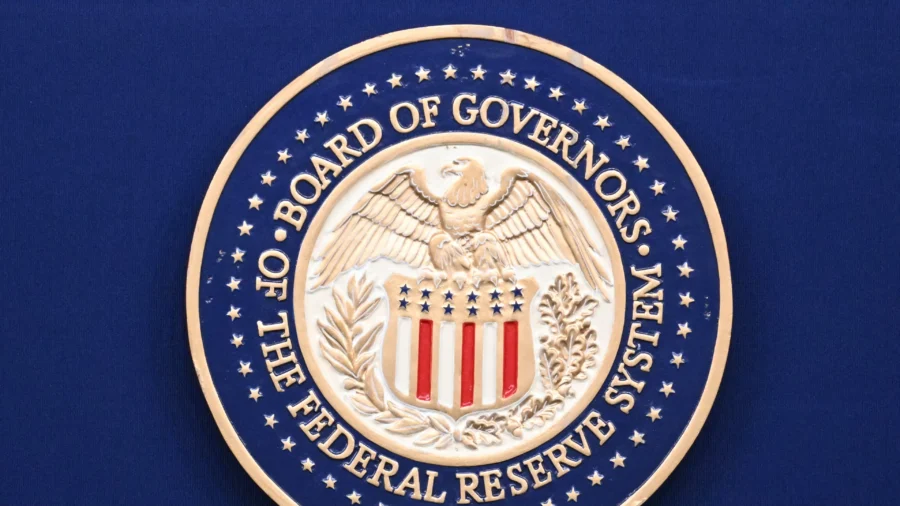The U.S. House of Representatives passed a bill preventing the government from issuing a Central Bank Digital Currency (CBDC), which could enable surveillance similar to that employed by the Chinese Communist Party (CCP).
HR 5403 or the “CBDC Anti-Surveillance State Act” was introduced by Rep. Tom Emmer (R-Minn.) in September.
The bill prohibits the U.S. Federal Reserve Bank from “offering products or services directly to an individual, maintaining an account on their behalf of an individual, or issuing a central bank digital currency (i.e., a digital dollar) directly or indirectly to an individual.” In addition, “the Board of Governors of the Federal Reserve System is prohibited from using a central bank digital currency to implement monetary policy or from issuing a central bank digital currency.”
On Thursday, the House passed HR 5403 in a 216-192 vote tally. In a May 23 press release, Rep. Emmer pointed out that, unlike decentralized cryptocurrencies such as bitcoin, a CBDC is a digital version of sovereign currency that is designed, issued, and controlled by a government.
Since it is subject to central control and is programmable by the entity controlling it, a CBDC does not have the privacy protections that cash affords. As such, if a CBDC were to be imposed in the United States, the federal government would have the power to surveil the transactions of American citizens.
Furthermore, it can also suppress political activity that a ruling party deems problematic through financial restrictions and manipulations.
In 2022, the Biden administration issued an executive order backing the research and development of a CBDC.
“This effort prioritizes U.S. participation in multi-country experimentation, and ensures U.S. leadership internationally to promote CBDC development that is consistent with U.S. priorities and democratic values,” according to a White House fact sheet issued at the time.
Reports issued by the Federal Reserve as well as other agencies outlined the Biden administration’s interest in a “surveillance-style CBDC,” the GOP lawmaker said.
Mr. Emmer noted that foreign governments have already shown a willingness to weaponize the financial system against their citizens, pointing to China. The CCP employs a CBDC that is used to “monitor and control citizens’ spending habits.”
In Canada, the Trudeau administration froze the bank accounts of hundreds of citizens who took part in the 2022 trucker’s protest who were demonstrating against the COVID-19 vaccine mandate.
The bill prevents such incidents from happening in the United States by blocking the Federal Reserve from issuing a CBDC. The legislation offers an assurance that the Fed never becomes a retail bank that gathers the personal financial information of citizens.
If the federal government seeks to create a digital U.S. dollar, it can only do so after receiving “explicit authorization” from Congress.
“Whatever is ultimately developed must emulate the core tenets of cash. Simply put: any digital currency issued by the government, again must be open, permissionless, and private,” Mr. Emmer said.
“It cannot be used in the way the Chinese have deployed their digital yuan to build social credit scores on their citizens based on their purchases and their behavior.”
In a May 23 social media post, Rep. Mike Flood (R-Neb.) stressed the need to prevent a CBDC in the United States.
“Imagine the politician you dislike the most with the power to monitor, restrict, or even halt the financial transactions of their political opponents. It’s a horrifying thought, and it cuts to the core of why we need to reject a retail CBDC in this country,” he wrote.
Marshall Hayner, the CEO of Metallicus, a company building a digital asset banking network using blockchain technology, suggested that if the United States is not getting a CBDC, then “banks and credit unions should be creating their own private ledgers on shared consensus and tokenizing USD.”
Global CBDC Network
Global institutions have talked about instituting CBDCs worldwide. Last year, the International Monetary Fund (IMF) said it was working on a platform that would allow CBDCs issued by various governments to interoperate on a global scale.
During a June 19 event in Morocco, the IMF’s managing director, Kristalina Georgieva, said that CBDCs “should not be fragmented national propositions … To have more efficient and fairer transactions, we need systems that connect countries—we need interoperability.”
In an interview with EpochTV’s “American Thought Leaders” program, author and serial entrepreneur Aaron Day warned that global adoption of CBDCs would push the world into “global tyranny, in this one world form of government based on fear, centralization, and complete authoritarian control.”
There are also concerns that CBDCs could pose a threat to the traditional banking system. A February 2024 report by the Bank of Canada warned of such a consequence.
It noted that CBDCs would compete directly with bank deposits in the market. As such, CBDCs could cut down the market for bank deposits, thus negatively affecting bank profitability and undermining a country’s financial stability.
If CBDCs turn out to be good substitutes for parking money at private banks, any stress in the financial market could trigger people to quickly move their deposits into the CBDC, Steve Ambler, professor emeritus of economics at Université du Québec à Montréal, told The Epoch Times.
“It [CBDC] could somehow encourage a run on the banks that otherwise might not occur,” he said.
During a campaign stop in New Hampshire earlier this year, former President Donald Trump vowed that he would “never allow the creation of a central bank digital currency. Such a currency would give the federal government absolute control of your money.”
From The Epoch Times

